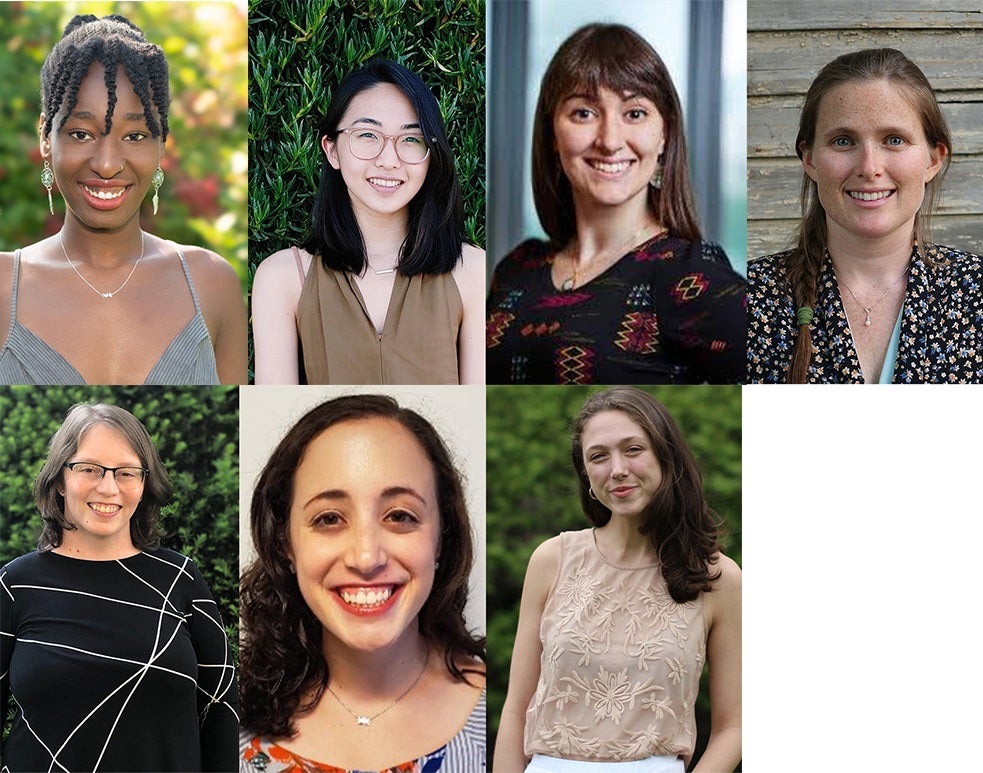Eight MPH 65 students in the Health & Social Behavior field of study were awarded Rose Service Learning Fellowships to fund their MPH practicum projects this summer. In addition, one PhD PHS student (Ryan Keen) in the Social and Behavioral Sciences field of study was awarded the Fellowship.
The Rose Service Learning Fellowships are funded by a generous gift from Dr. Deborah Rose, SM ’75 to support students and post-doctoral fellows at Harvard Chan to travel and engage in service learning projects. While most awards are for international travel, some awards are also made for U.S.-based projects, including in the Boston area. There are currently two funding cycles per year, in the fall and spring.
About the Students’ Projects
Jasmine Akuffo, Health Impact Assessment on CORI checks in accessing affordable housing in Hampden County, MA
This summer Jasmine Akuffo will be working on a Health Impact Assessment with the Public Health Institute of Western Massachusetts to assess the use and impact of CORI (Criminal Offender Record Information) checks in affordable housing applications on older adults, especially those in communities highly impacted by health inequities. The goal of this HIA is to create policy or practice changes that can improve access to affordable housing for older adults with prior involvement in the criminal justice system.
-Jasmine Akuffo, MPH ’21
Vanessa Beltran, Returning to our Roots- Understanding Colonization, Structural Racism and Food to Improve Nutritional Outcomes
Hye Young Choi, Community Based Health Worker Qualitative Interview Project
This summer I will be working on a qualitative interview project in Providence, Rhode Island, in which I will be learning from community-based health workers (CBHWs) with lived experiences of homelessness, substance use, and incarceration. The project aims to improve our knowledge of CBHWs’ roles, motivations, and metrics of success in order to inform more equitable and sustainable work environments for CBHWs. I hope the narratives gathered from this project will ultimately help organizations better support and retain CBHWs who play crucial roles in engaging and advocating for vulnerable and hard-to-reach patient populations.
-Hye Young Choi, MPH ’21
Madison Esposito, California Indigenous History and Wellness Project
The California Indigenous History and Wellness Project is a Native informed, cross curricular, inquiry-based unit for ninth grade, resulting in a historical, scientific, traditional, and holistic understanding of public health. Students will understand the Indigenous wellness framework, consisting of physical, mental, spiritual, and emotional wellbeing and be able to apply it to real life. Additionally, students will understand the ways that the historical and contemporary destruction and erasure of traditional health practices results in negative health outcomes and how Native resistance and resilience can and has protected the health of Indigenous peoples. This curriculum is being written in collaboration with Indigenous scholars and knowledge keepers. All information and stories used in this process have been sourced to intentionally elevate Indigenous voices and ways of knowing and only used when given explicit permission.
-Madison Esposito, MPH ’21
Kelsey Hunt, Saving for Indepedent
Saving for Independence is a collaborative project founded on the principle that people with disabilities have a right to independence and self-determination. For this, financial security is an imperative; our mission is to make this a reality. To this end, we are working to build an automated system that reduces the complexity of applying for disability benefits in Nova Scotia, and address the inequities faced by people with disabilities.
-Kelsey Hunt, MPH ’21
Ryan Keen, Palliative Cancer Care for American Indians
Sarah Page, Evaluation of Health Transition for Youth with Special Health Needs
My project centers on evaluating the services that the Massachusetts Department of Public Health (DPH) offers to support the transition from pediatric to adult health care for youth and young adults with special health needs. I will be measuring the processes involved in delivering the transition services and will be measuring the outcomes of those services. The goal of the evaluation is to improve the efficacy and efficiency of the transition services.
-Sarah Page, MPH ’21
Dana Rosenberg, Community Benefits Office Internship: Promoting Cancer Health Equity in Boston
I will be completing two projects for the Community Benefits Office: updating Dana-Farber Cancer Institute’s breast lay health advisor (LHA) curriculum and creating a summary digest of the 2019 Community Health Needs Assessment (CHNA). I will be focusing on updating the LHA curriculum to include new screening guidelines for breast cancer and other preventable cancers, health promotion information, and survivorship guidelines. Dana-Farber has a time breast LHAs, similar to community health workers, that often have lived experience with breast cancer, and bring accessible health education to their communities that are considered medically underserved in Boston.
-Dana Rosenberg, MPH ’21
Jenna Sherman, Birth Beyond Bars: Assessing Caregiver and Infant Needs
The overarching goal of this project is to gain a better understanding of the context in which the caregivers of the babies of incarcerated women are operating and what challenges they face across health, finances, and housing, and how those variables impact the infants. We plan to meet this goal by building out a longitudinal study to follow the babies of incarcerated women in Georgia and the caregivers who are caring for them; through this research we aim to address central research questions such as:
- How do these babies fare with health, physical health, and development?
- How are the caregivers coping — their access to resources? Mental health status? Are babies relocated?
- How is the relationship between mother and baby maintained, if at all?
This research will be mixed-methods, incorporating both data on the quantitative health metrics of infants within the study using the ASq3, and caregiver qualitative responses to questionnaires pertaining to the above research questions.
-Jenna Sherman, MPH ’21
Read more about the Rose Service Learning Fellowships.




